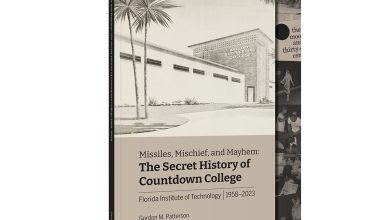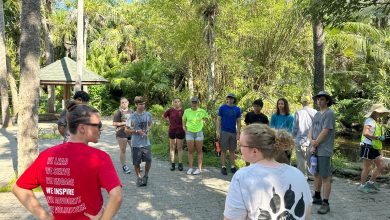The Science of Music
by Jamie Younkin, Assistant Professor of Humanities and Communication
Our careers are more like “callings”—we follow them because we are inspired to seek knowledge and pursue greater possibilities. We have affinities in our disciplines that compel us to seek this inspiration. My disciplines are music and history, but my inspirations come from the greater world of human accomplishment.
Around the year 500 C.E. a Roman philosopher and mathematician named Boethius asked “How indeed could the swift mechanism of the sky move silently in its course?” He noted that everything that moves makes sound, and since the planets also move they surely make sound. This meant that there must be a literal harmony sounding amongst the celestial spheres. For several centuries after the moment he wrote those words, music would be a part of the scientific curriculum alongside arithmetic, geometry and astronomy. Isn’t it strange that we now find it among the Liberal Arts?
Music was my career calling ever since I can remember, but just like Boethius, I couldn’t help but notice that music intersects with almost every other discipline because it is a physical phenomenon. More than that, though, music is an expression of the fundamental creative impulse that binds us all to one another. To find the lost songs of past civilizations is to find a window into the world that sang in the ears of our greatest heroes. Galileo Galilei was rocked in his cradle by a musician father and Albert Einstein found inspiration on the strings of his violin. As a music historian, the heroes of all disciplines are inspiration for me. My mission is to seek the muses that serenaded their achievements.






Right on! One must find one’s passion and live it to the fullest. Whether it is musica mundana or musica universalis that binds us, I do not know, but Boethius,et al and later Goethe (Farbenlehre) and CFD Schubart all seem to have intuitively known something that – until more recently – Heisenberg and quantum mechanics have only confirmed: there is an energy that binds us and draws us together. What better way to share that than through the nonlocal, metaphysical experience of music?
Thanks. I believe the ancient Greeks actually beat Boethius to that theory, but he managed to put it in a format that resonated with future audiences well. I remember trying to imagine what the songs must have sounded like in his “Consolation of Philosophy” as a young undergraduate. Finding that he was also a musician and mathematician was mind-boggling! We have a lot of young scholars at Florida Institute of Technology that remind me of the multi-talented Boethius. The Florida Tech Music Program is home to some of the brightest minds across the university, from engineers to astronomers and pilots. It is such as pleasure to work with them and it is exciting to think of all they will accomplish with their many talents.
You are most welcome. De institutione musica: “Music is so naturally united with us that we cannot be free from it even if we so desired.” Compare also, “synesthesia,” and “Ideen zu einer Aesthetik der Tonkunst,” CFD Schubart. I would encourage FIT to (if not already discussed) consider offering a course examining the phenomenon of music and its peripheral manifestations (e.g., color, non-local audience communication and empathy) as measured by quantum mechanics and other cutting edge technology. FIT appears to me ideally situated to pursue this. This would seem to me an ideal marriage of the artistic and the scientific; verily, “musica mundana.”
Cheers….